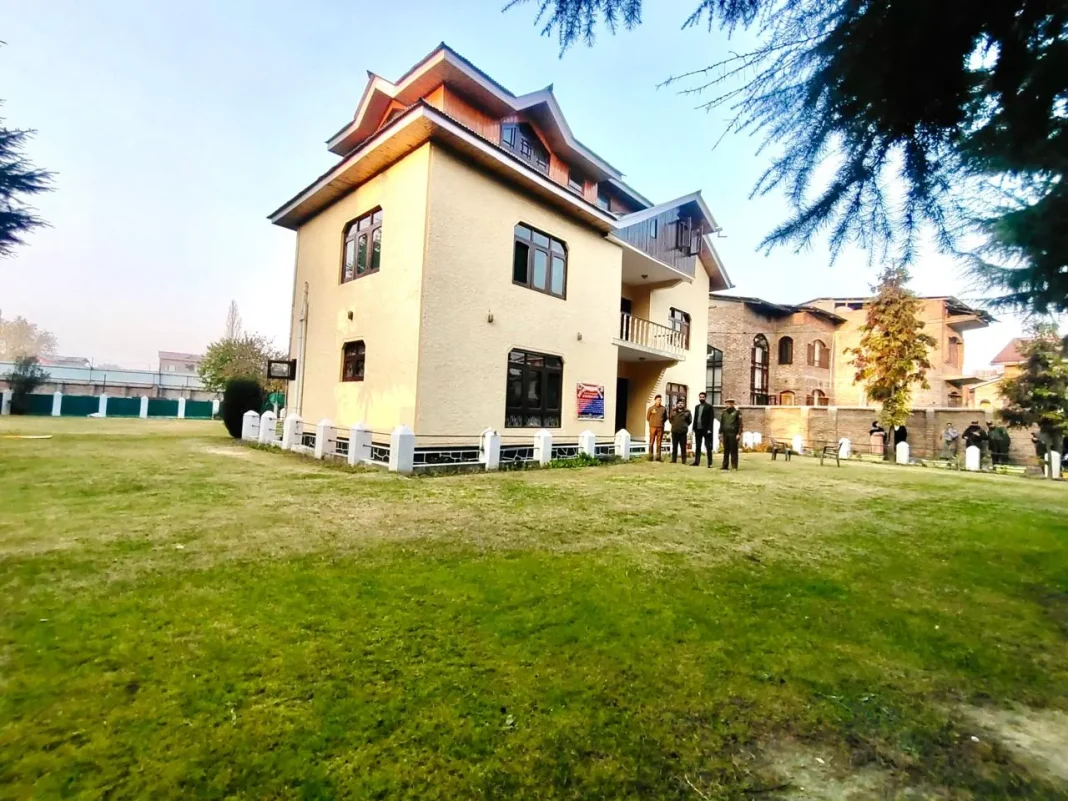Police Attach Prominent Lawyer Mian Abdul Qayoom’s Property Under UAPA in Srinagar
In a significant development echoing across legal and political circles in Jammu and Kashmir, authorities have attached the residential house and adjoining land belonging to Mian Abdul Qayoom, the former president of the Jammu and Kashmir High Court Bar Association. The action, carried out under the stringent provisions of the Unlawful Activities (Prevention) Act (UAPA), underscores the continued application of counter-terrorism laws against individuals alleged to be involved in activities deemed detrimental to national security.
The attachment proceedings were initiated by the State Investigation Agency (SIA) of the Jammu and Kashmir Police, which has been at the forefront of tackling what it describes as a network of terror funding and support infrastructure in the region. The property, located in Barzulla, Srinagar, a prominent area within the city, has been sealed and formally brought under the control of the investigating agency. This move sends a clear signal about the government’s resolve to dismantle alleged support systems for unlawful activities, even if it involves highly influential personalities.
Allegations and the UAPA Framework
According to official statements, the attachment stems from allegations that the property was utilized for “perpetrating and promoting unlawful activities,” and that Mian Abdul Qayoom was actively involved in supporting and facilitating such activities. While specific charges against him remain under investigation, the action falls under sections of the UAPA, particularly Section 25, which empowers authorities to attach properties derived from or intended to be used for terrorist activities. This section is often invoked to sever financial lifelines and operational bases of individuals or organizations suspected of involvement in terrorism.
The UAPA, amended several times over the years to enhance its scope and punitive measures, grants wide powers to law enforcement agencies to deal with terrorism and related offences. It allows for the designation of individuals as ‘terrorists’ and the attachment, forfeiture, or confiscation of their properties if they are suspected of having links to unlawful activities or terrorism. Critics often highlight concerns about due process and the potential for misuse, given the law’s stringent bail provisions and the often-prolonged nature of investigations and trials under its ambit. However, proponents argue it is an essential tool to combat terrorism effectively in a challenging security environment.
A Prominent Legal Voice Under Scrutiny
Mian Abdul Qayoom is not an ordinary citizen; he is a highly recognized and often controversial figure in Jammu and Kashmir’s legal landscape. Having served multiple terms as the president of the High Court Bar Association, he has been a vocal advocate for Kashmiri self-determination and has frequently engaged in legal battles concerning human rights and civil liberties in the region. His prominent role has, at times, brought him into direct confrontation with the state, leading to past detentions and legal challenges.
This latest action against such a high-profile personality is unprecedented in its scale and implication. It signifies a deepening of the state’s crackdown on elements it perceives as either directly or indirectly aiding and abetting unlawful activities. The authorities maintain that no individual, regardless of their stature, is above the law when it comes to matters of national security. An official statement from the police noted, “The attached property was identified as being used for perpetrating and promoting unlawful activities, posing a direct threat to the sovereignty and integrity of the nation. This action is part of a broader strategy to choke funding and infrastructure for terror groups.” This stern stance reiterates the government’s commitment to rooting out any support structure for militant outfits.
Implications and the Path Forward
The attachment of Mian Qayoom’s property marks a significant escalation in the legal actions against individuals perceived to be involved in separatist or anti-national activities. For Mian Abdul Qayoom and his family, this development initiates a complex and arduous legal battle. While an attached property is not immediately confiscated, it restricts the owner’s rights to access, sell, or transfer the asset, effectively freezing it until the legal proceedings conclude. Mian Qayoom will have legal recourse to challenge the attachment in appropriate courts, arguing against the allegations and the legal basis of the action.
This incident also sparks broader discussions about civil liberties, the rule of law, and the balance between national security and individual rights in regions like Kashmir. The UAPA’s application continues to be a subject of intense debate among legal scholars, human rights activists, and policymakers. As the legal proceedings unfold, the case will undoubtedly be watched closely by national and international observers, offering insights into the evolving legal and political landscape of Jammu and Kashmir.
The situation remains fluid, with further details expected to emerge as investigations proceed and legal challenges are mounted. The future of the attached property and the legal fate of Mian Abdul Qayoom will ultimately be decided through the judicial process.




